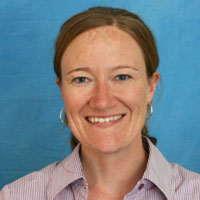Susan Reif’s newly published report Deep South Has the Highest HIV-elated Death Rates in the United South is gaining more press. Susan Reif, a Research Associate at CHPIR, and Carolyn McAllaster, a clinical professor at Duke University School of Law, wrote an op-ed for The News & Observer in honor of World AIDS Day, December 1, 2015.
The report states “the South continues to bear the heaviest HIV burden, with the highest rates of new HIV diagnoses and people living with diagnosed HIV.” Furthermore, an important finding for policymakers is “death rates with HIV as the underlying cause were highest in the South.”
The report calls for U.S. federal policy makers to “direct adequate prevention resources to the U.S. South, including areas outside the large cities, where HIV diagnosis numbers and HIV-related deaths are high.”
The op-ed in The News & Observer can be found here.
This report was also featured on the Duke Global Health Institute’s website and that article can be found here.
The full report can be found on the Southern HIV/AIDS Strategy Initiative by clicking on the picture below.

New research finds institutions are no less safe for orphans than family care
Orphans living in families are at least as vulnerable to sexual and physical abuse and other traumas as orphans living in institutions, a new study finds.


Christine L. Gray, MPH, epidemiology doctoral student at the UNC Gillings School of Global Public Health is lead author of the work, published online Aug. 26 in the journal Global Health: Science and Practice. Brian W. Pence, PhD, associate professor of epidemiology at the Gillings School, is a co-author.
The research, which analyzed longitudinal data from 2,235 orphans from five low- and middle-income countries participating in the Positive Outcomes for Orphans (POFO) study, challenges the commonly held perception that institutional care puts children at higher risk for experience of trauma than does family-based care.
“We found that the incidence of traumatic events is high in both institutions and in families,” Gray said. “The most commonly experienced trauma was physical or sexual abuse – and that was higher among children placed in families.”
“Our findings suggest that eliminating institutional care may be removing a viable – and in some cases protective – placement option for vulnerable children,” Whetten said. “We need to use all of the available evidence to identify support services and appropriate care for children, rather than applying sweeping policies that may have unintended consequences, including a rise in street children and child-headed households.”
The full article can be found here: http://sph.unc.edu/sph-news/new-research-finds-institutions-are-no-less-safe-for-orphans-than-family-care/
Please click the image below to download the full PDF article.

NC-LINK Implements and Evaluates Innovative HIV Care Approaches in North Carolina
Kristen Sullivan, a research scholar at CHPIR, and her team are working with providers and policymakers to evaluate innovative approaches to engage people living with HIV (PLWH) in consistent medical care across North Carolina. NC-LINK—is a collaborative effort of the North Carolina Department of Health and Human Services, The University of North Carolina at Chapel Hill, and Duke University. Kristen Sullivan leads the evaluation and provision of technical assistance to the project sites.
Global is Local
Sullivan’s interest in ensuring sustained medical care to PLWH reaches far beyond North Carolina. Currently, she’s working with global health professor Dorothy Dow to analyze data from HIV-positive adolescents in Moshi, Tanzania.
Sullivan notes that engagement in continuous HIV care is a major global challenge, and although many issues affecting HIV care are culturally and contextually unique, many commonalities also exist across different countries. For example, she has seen many of the same barriers to care in Moshi that exist here in North Carolina, such as stigma, lack of transportation, mental health problems and poverty.
“There is much to be learned from each other,” Sullivan said, “and I feel very lucky my work allows me the opportunity to explore solutions to these challenges on both local and global levels.”
For more on her featured article, visit the DGHI newsletter article here.





